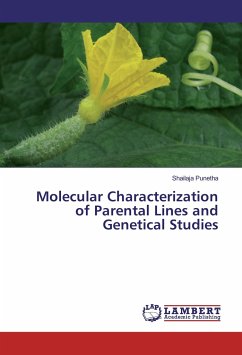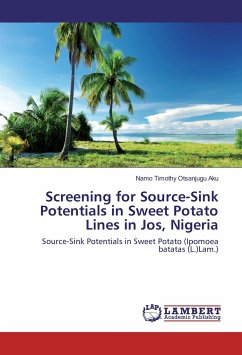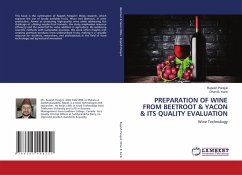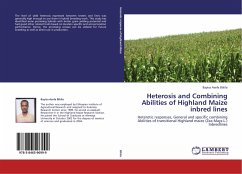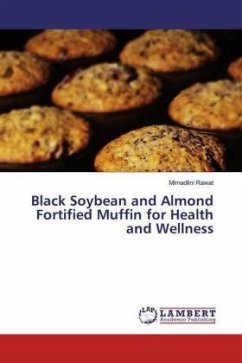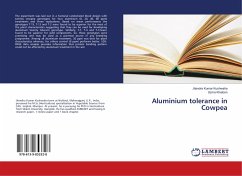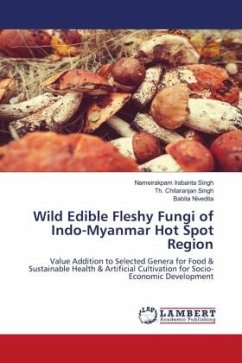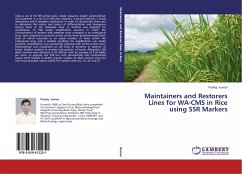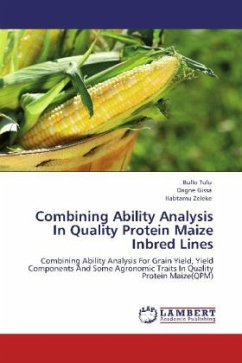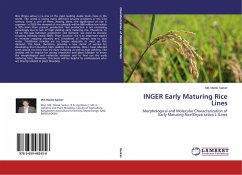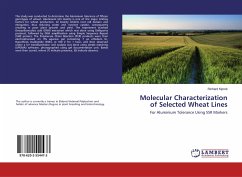
Molecular Characterization of Selected Wheat Lines
For Aluminium Tolerance Using SSR Markers
Versandkostenfrei!
Versandfertig in 6-10 Tagen
27,99 €
inkl. MwSt.

PAYBACK Punkte
14 °P sammeln!
This study was conducted to determine the Aluminium tolerance of fifteen genotypes of wheat. Aluminium (Al) toxicity is one of the major limiting factors for wheat production. Al toxicity inhibits root cell division and elongation, thus reducing water and nutrient uptake, consequently resulting in poor plant growth and yield. The experiment involved Deoxyribonucleic acid (DNA) extraction which was done using Dellaporta protocol, followed by DNA amplification using Simple Sequence Repeat (SSR) primers. The Polymerase Chain Reaction (PCR) products were then electrophoresed on 3% agarose gel cont...
This study was conducted to determine the Aluminium tolerance of fifteen genotypes of wheat. Aluminium (Al) toxicity is one of the major limiting factors for wheat production. Al toxicity inhibits root cell division and elongation, thus reducing water and nutrient uptake, consequently resulting in poor plant growth and yield. The experiment involved Deoxyribonucleic acid (DNA) extraction which was done using Dellaporta protocol, followed by DNA amplification using Simple Sequence Repeat (SSR) primers. The Polymerase Chain Reaction (PCR) products were then electrophoresed on 3% agarose gel containing 7 miL ethidium br, Hypothesis (null)omide (EtBr), at 100 V for 1 hour, and then observed under a UV transilluminator and analysis was done using simple matching (UPGMA) software, photographed using gel documentation unit. Bands were then scored, where (1) indicate presence, (0) indicate absence.



